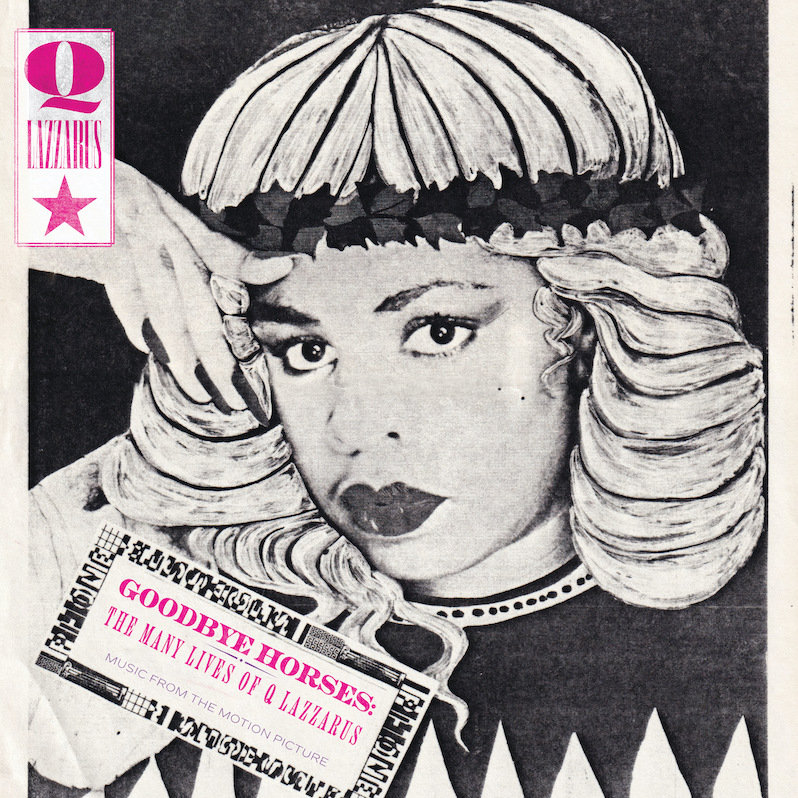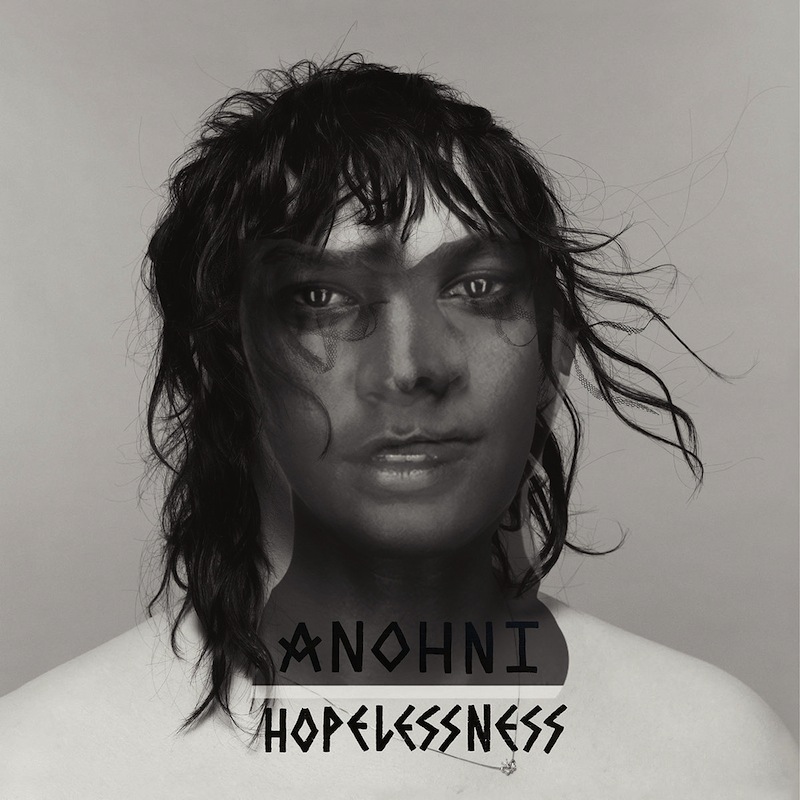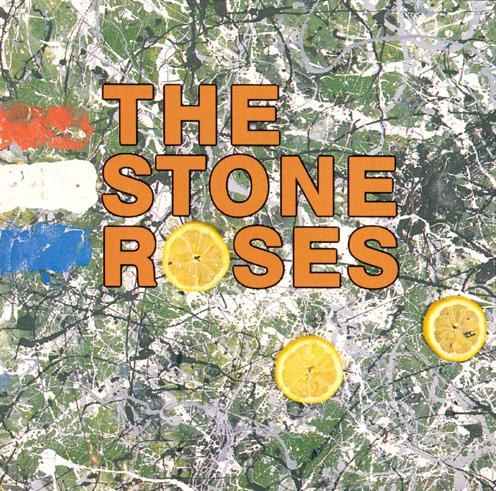Q Lazzarus : Goodbye Horses: The Many Lives of Q Lazzarus

Off and on throughout his career, the late film director Jonathan Demme made some intriguing connections to music. These stretched from placing A-list actress Meryl Streep in the unlikely role of a rock star reconciling with her family in 2015’s Ricki and the Flash (the last movie he directed before his death) all the way back to music video and movie work through the 1980s for the likes of New Order, the Sun City project, and most famously Talking Heads. But this writing is not about Demme—it’s about one of his most memorable, fortunate contributions to the lexicon of movie music.
Q Lazzarus is the stage name of New Jersey native Diane Luckey, and Goodbye Horses: The Many Lives of Q Lazzarus is a new documentary and accompanying soundtrack tracing how her career sadly became a road to nowhere. Both her introduction to the spotlight, and the new narratives of her life in and out of it, came out of cab rides she gave to movie directors. First, in 1986, desperately seeking entree into the music industry, she played a demo tape to Demme in her taxi and transformed him from passenger to fan.
Demme would spend years afterwards trying to raise her profile with cameo screen time and music placements in his films. One of those attempts landed, cementing Q Lazzarus’ niche in pop culture: her New Wave crossover single “Goodbye Horses” can be heard while serial killer Buffalo Bill admires himself during 1991’s Oscar-winning Best Picture The Silence of the Lambs. Sadly, Q Lazzarus would remain a one-hit wonder despite this exposure. She struggled to find a foothold as a bandleader and solo artist in both America and England, eventually retreating back to the New York-area transportation services that had first sustained her.
Then, in 2019, filmmaker Eva Aridjis recognized Luckey as her driver even after decades away from music, and convinced her to help tell the Q Lazzarus story as a documentary. Goodbye Horses: The Many Lives of Q Lazzarus is a posthumous attempt to claim some of the recognition and royalties Luckey deserved but never received. The film’s soundtrack is a fascinating compilation of her musical output. Many of the songs here are publicly available for the first time—dug out of bags that served as Luckey’s archives, rescued from the dustbin of rejected-demo history.
For all of the potential promised by “Goodbye Horses” the song, Goodbye Horses the album shows Q Lazzarus trying out multiple forms of pop and rock just hoping something would stick. A lot of it is delivered in a masculine-coded tenor that was part of the mysterious appeal of her one big hit, comparable to the likes of Alison Moyet from Yaz or Erasure’s Andy Bell. (A confession: I never knew Q Lazzarus’ gender until this recent resurgent interest.) Unapologetic and unafraid in its range of styles, the soundtrack suggests paths that could have lifted her above the industry’s fray as well as anchors dragging her down to obscurity.
There are multiple attempts at hard-rocking pop and hair metal-lite clearly connected to Q Lazzarus’ time unproductively fronting a band in London. “A Fool’s Life” is the early peak of these departures from what little we knew of Q Lazzarus, but it’s quickly followed by songs like the synth-driven “Hellfire” and “Momma Never Said” that don’t quite know what they want to be. It’s certainly all interesting to listen to, but even if it is your cup of tea, work like the power ballad “Don’t Let Go” doesn’t offer the songwriting, performance, or production polishes you’d expect from Cher, Bon Jovi, or other residents of the mainstream from the late 1980s to the mid-1990s.
Combining both skill and desperation, Q Lazzarus, her occasional songwriting partner Dan Argen, and her bandmates found other sounds that did work in an odd fashion, from instrumental music with looped classic-rock guitar picking to slinky disco that hearkened back to “Goodbye Horses” itself. The Goodbye Horses soundtrack includes a rendition of George Gershwin’s “Summertime” and closes with “It Don’t Mean Nothing,” each acknowledging spacey and liberating dub influences. “I Don’t Want to Love You Anymore” is a fun, sloppy piss-take on goth and Los Angeles punk, and “Fathers, Mothers, and Children Dying in the Street” is the kind of reductive New York City observational that Lou Reed loved to make.
The most thrilling, most frustrating bits of Goodbye Horses show that Q Lazzarus was obviously competent with and aware of cutting-edge music trying to rise up from the underground at the same time she was. You can tell that she could tell new wave and disco were starting to weave and mutate. Results scattered across the soundtrack can be pulled together to connect power pop and so-called college rock, house music, and the baggy sound of Madchester. Tracks like “I See Your Eyes” and “Bang Bang” ride jangly grooves that could have fit on The Stone Roses or Blur’s Leisure. “My Mistake” and “Love Lust” suggest club culture beginning to expand into rave’s fields and abandoned warehouses. And even with “The Time is Right (Dare)” as overstuffed as it is, it leaves us wondering where Luckey might have fit among the ranks of go-to dance divas.
Early on in the album, we hear Q Lazzarus covering Talking Heads’ “Heaven,” a studio version of a song she performed uncredited in Demme’s 1994 film Philadelphia. In it she makes an important lyrical change, tweaking the chorus to call the bar Heaven not “a place where nothing ever happens” but “a place where nothing can go wrong.” It’s a microcosm of the tale Goodbye Horses: The Many Lives of Q Lazzarus tries to recount: even in a world where a window didn’t open for her when her door of opportunity closed, she took the dark points-of-view of punk and post-punk and kept trying to turn them into something more technicolor and hopeful.
Label: Sacred Bones
Year: 2025
Similar Albums:
Adam Blyweiss is associate editor of Treble. A graphic designer and design teacher by trade, Adam has written about music since his 1990s college days and been published at MXDWN and e|i magazine. Based in Philadelphia, Adam has also DJ’d for terrestrial and streaming radio from WXPN and WKDU.




